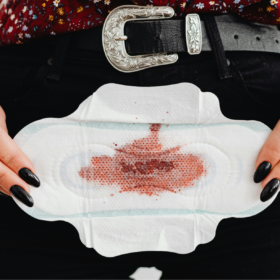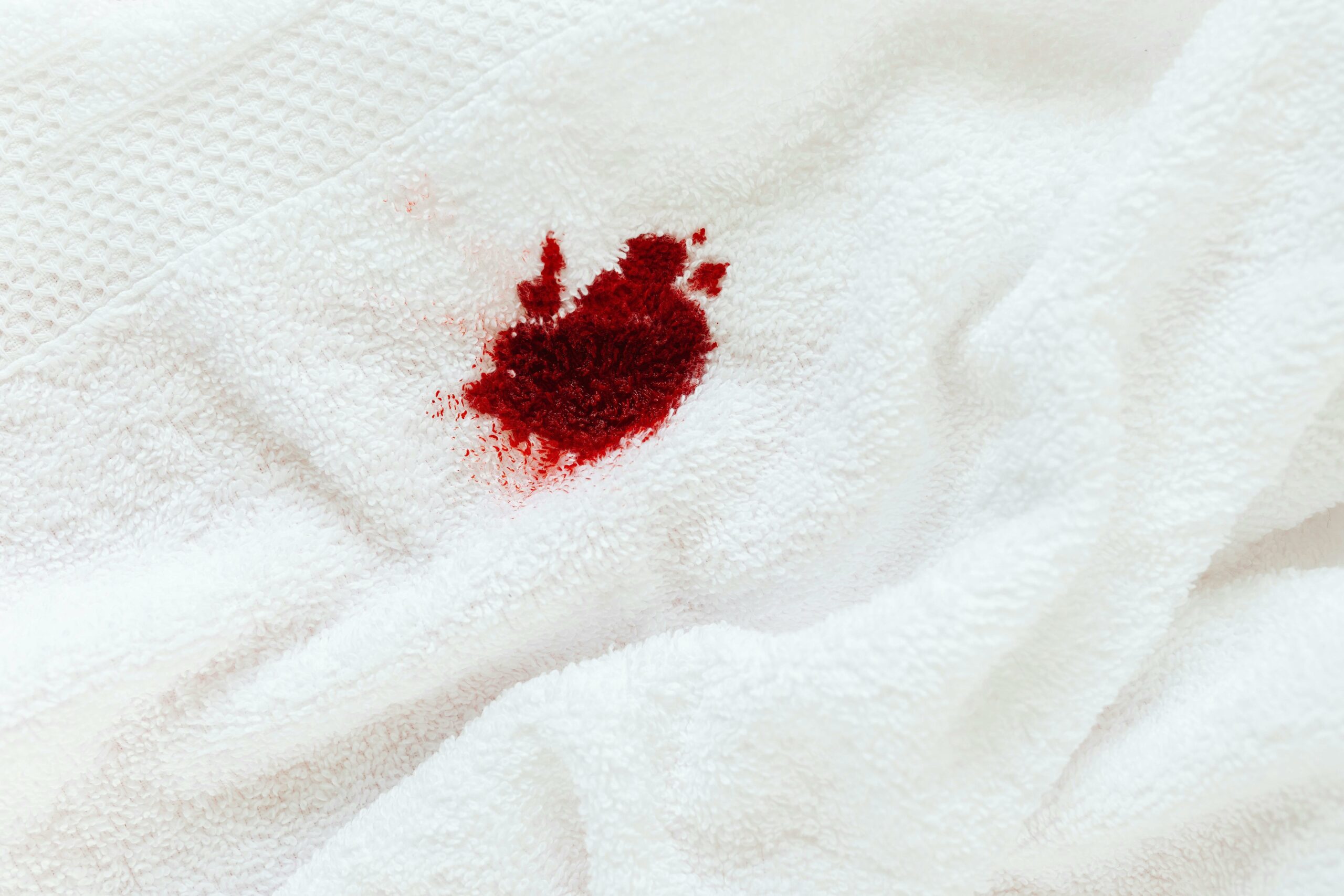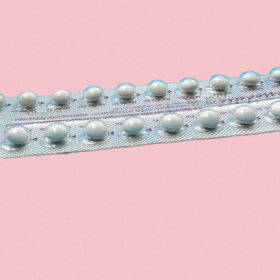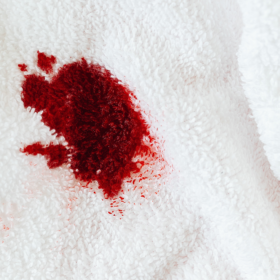
Mirena coil and menopause: everything you need to know
In this article
What's the lowdown?
The Mirena coil does not impact when you start the menopause
Some people find the Mirena coil can help with heavy bleeding when inserted during the perimenopause
Becaue the Mirena coil can stop your periods, it can mask symptoms of the menopause starting
HRT is an effective treatment for menopausal symptoms however it is not a form of contraception
It is still possible to get pregnant in your 40s or 50s. You can stop using contraception after the menopause or when you are 55 years old

It can be difficult to understand what happens when you hit menopause in any circumstances. But what about when menopause starts whilst using contraception, or with the Mirena coil (IUS) in place?Some people think the Mirena coil encourages menopause, some think it delays it and others think it masks the symptoms altogether. So what’s the truth?
Navigating contraception and the menopause can be a confusing journey, but it doesn’t have to be!
What is menopause?
The natural menopause is when women’s ovaries stop producing the hormones oestrogen and progesterone. Hormone levels can fluctuate for several years before (which is called the perimenopause) eventually becoming so low that the lining of the womb no longer sheds, meaning periods stop. After the menopause (which 12 months after your last period) women are no longer able to become pregnant naturally.
The menopause is a natural part of ageing, experienced by all women, and normally happens between the ages of 45 and 55. There can be exceptions to this and before the age of 45 is considered early menopause. When menopause occurs under the age of 40, this is known as primary ovarian insufficiency (POI). In the UK, the average age for menopause is around 51.
Can the Mirena cause menopause?
Many people think that interfering with hormones or being on contraception that stops your period can have an effect on when you hit menopause, but this is not true.
Even if you are using a form of contraception that stops you ovulating, as you get older you steadily lose follicles in the ovaries (which produce eggs) and the ovaries stop producing oestrogen and progesterone. The Mirena (or any other type of contraceptive) does not have an effect on the time it takes to reach the menopause.
Does the Mirena coil help with menopause symptoms?
Mirena coil for heavy bleeding in menopause
The IUS, such as the Mirena coil, is incredibly good for treating one perimenopausal symptom in particular, heavy periods. In some cases, your monthly flow can get so heavy that you soak through a pad or tampon every couple of hours. Having a Mirena coil inserted during the perimenopause (the time from the beginning of menopausal symptoms to the after menopause) can help treat heavy menstrual bleeding.
What do Mirena reviews say?
52% of Lowdown users said the Mirena coil stopped their periods altogether, and 17% said it made them lighter (data retrieved 21.05.2024). The Mirena IUS is a recommended treatment for women who bleed heavily during their perimenopause.
Whilst the Mirena coil may be a good treatment for symptoms like heavy bleeding, some women can experience side effects from the IUS such as acne, headaches or breast tenderness, although these tend to settle after a few months.
Does the Mirena coil mask menopause symptoms?
The Mirena coil may stop your periods altogether, but it will not mask any other symptoms of menopause. It can, however, be hard to tell whether you are perimenopausal as most women look for changes to their bleeding first and foremost. In fact, hot flushes are actually the commonest symptom of peirmenopause and the Mirena is unlikely to mask them. The Mirena coil can also cause a few symptoms that may look a lot like menopause, including mood swings and irregular periods. Using a symptom checker can help to work out whether it’s your coil or the perimenopause.32% of The Lowdown user reviews said the Mirena coil had a negative or very negative impact on their mood, whilst 43% said it had no impact (data retrieved 21.05.2024).
What are the signs of menopause to look for with the Mirena?
The Mirena coil shouldn’t affect menopausal symptoms other than bleeding. As your oestrogen levels naturally drop, you may still experience hot flushes, night sweats and sleepless nights, amongst other symptoms. Starflower oil is a little-known natural remedy that’s great at helping to ease hormonal symptoms due to the menopause, like hot flushes. Intrigued?We’ve got you – check out our product page for more information on the benefits of starflower oil. Buy from Amazon (our affiliate link, checked by doctors!)
HRT can help during menopause
Although the Mirena coil may lighten your bleeding or make it stop altogether, it doesn’t alleviate other symptoms such as hot flushes. However Hormone Replacement Therapy (HRT) might.
HRT is available in pills, patches, and gels for example and can help women with perimenopausal symptoms like:
- Night sweats
- Vaginal dryness
- Hot flushes
How to take oestrogen with the Mirena
HRT can be given as:
- Oestrogen only therapy for women that have had a hysterectomy (removal of the womb)
- Oestrogen plus progestogen for women who have a uterus
Oestrogen comes in different forms including tablets, patches, gels and sprays. Tablets and patches can have progestogens combined within them, but gels and sprays require the progestogen to be given separately. The Mirena coil can be used as the progestogen part of HRT. It’s simple to change the dose of your oestrogen part of your HRT while the Mirena is in place. You can ask for the Mirena as an option for HRT during your first menopause or HRT doctor’s appointment.
HRT is not a method of contraception
Although HRT contains oestrogen and progestogen, it does not act as a form of contraception. You should therefore make sure you are using effective contraception in addition to HRT if needed. Check out our blog on contraception in your 40s and 50s for more information about this!.
Diagnosing menopause with the Mirena in place
Typically you don’t need a test from the doctor to diagnose perimenopause.
A clinical diagnosis can be made without lab tests in otherwise healthy women aged over 45 years with symptoms. Diagnosis of the perimenopause is made based on symptoms such as hot flushes and irregular periods. Menopause can be diagnosed in women who have not had a period for at least 12 months and are not using hormonal contraception, or in women who have had a hysterectomy who have symptoms – but if you have a Mirena then you may not be having periods…and you certainly haven’t had a hysterectomy!…so how to know when you have reached menopause and can remove your Mirena?
Tests to see if you’ve reached menopause with a Mirena coil
Since the IUS can stop your periods, you may not know if you are menopausal. If this is the case and you are looking to stop using contraception, your doctor can do blood tests to check levels of follicle-stimulating hormone (FSH). FSH helps regulate your menstrual cycle and egg production.
During menopause, FSH levels rise, whilst oestrogen levels drop and a blood test can reveal these changes. Your doctor may need to take a couple of tests over a period of time, as your FSH levels can rise and fall throughout your cycle. They’ll also consider other symptoms. If your FSH levels are persistently high, this indicates menopause and your Mirena can be removed if you are using it for contraception, by all means keep it in for HRT though.If you’re not sure whether the Mirena coil has made your periods stop, or whether you are menopausal, speak with your doctor or book an appointment with one of The Lowdown’s women’s health GPs for a personalised appointment to discuss your concerns.
What age should the Mirena coil be removed?
If you want to remain protected from pregnancy, continue with the Mirena coil until you’re 55 years old. If you’re using the Mirena as part of HRT, you can continue it for as long as you need.Naturally your fertility slows down in your 40s, however it is still possible to get pregnant until the menopause. To be safe, if you have a Mirena IUS or are using another progestogen only method and are not having periods you could continue to use this method until you are 55 years old, after which point you do not need to use contraception and can safely have your coil removed. Mirena coils normally provide protection against pregnancy for up to 8 years. However if you have had your Mirena inserted after the age of 45 it can be used for contraception without being replaced until you are 55. If you’re using the Mirena as part of HRT, it needs to be replaced every 5 years.Alternatively your doctor can test your FSH levels to determine when contraception should be stopped. You could remove your Mirena coil and opt for a different method of contraception such as condoms or non-hormonal methods and if your periods return, or if they don’t return after 12 months, then you’ve hit the menopause.You will still need to use contraception until you are:
- aged 55 or over
- or aged over 50 and it has been more than 12 months since your last period
- or aged between 45 and 50 and it has been more than 2 years since your last period
Combined hormonal methods containing oestrogen and progestogen are not recommended over the age of 50 due to increased health risks in this group.
To summarise
A Mirena coil doesn’t kickstart menopause or have any impact on at what age you will go through the menopause. However it can have an effect on your periods which may make identifying signs of the menopause more difficult.The Lowdown’s team of women’s health GPs are available to talk about contraception and the menopause, or any other hormonal questions you may have!
Our medical review process
This article has been medically reviewed for factual and up to date information by a Lowdown doctor.






